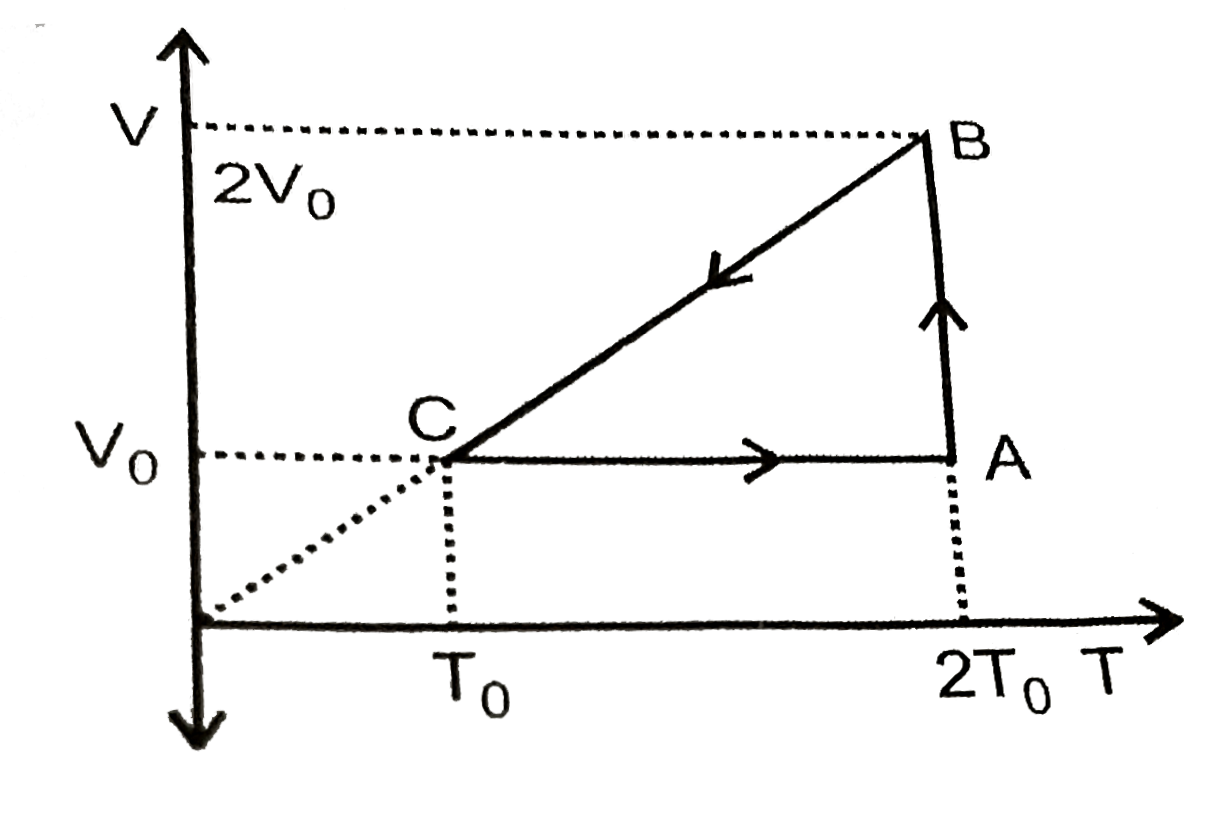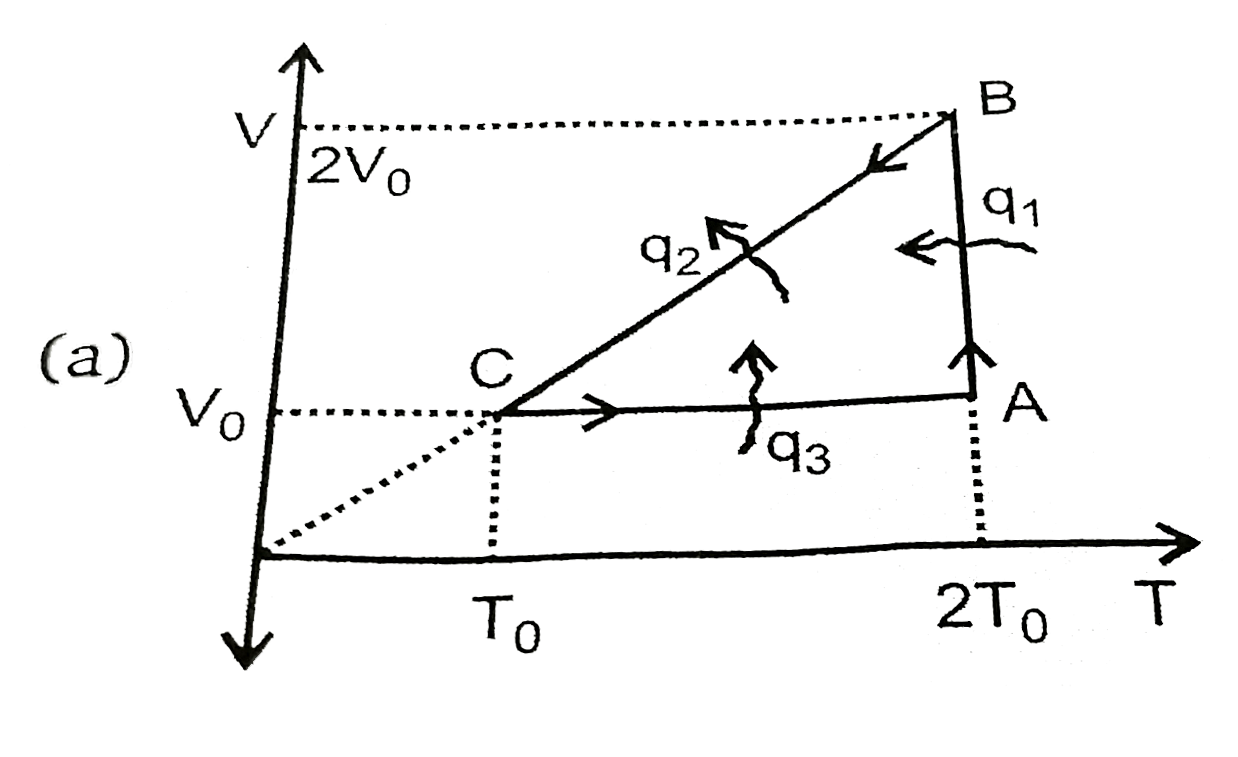The efficiency of an ideal gas with adiabatic exponent 'γ' for the shown cyclic process would be

(γ−1)(2 ln 2−1)1+(γ−1)2 ln 2
(γ−1)(1−2 ln 2)(γ−1)2 ln 2−1
(2 ln 2+1)(γ−1)(γ−1)2 ln 2+1
(2 ln 2−1)γ/(γ−1)
The correct Answer is:A

AB process
0=q1+w1
=q1−nR(2T0)ln2
BC process ΔU2=q2+w2
nR(γ−1)(T0−2T0)=q2−(nRT0V0).(V0−2V0)
CA process
ΔU3=q3+w3
nR(γ−1)(2T0−T0)=q3+0
Efficiency =Total work doneTotal heat absorbed=w1+w2q1+q3
=(−2RT0ln2)+(nRT0)(2RT0ln2)+(nRT0γ−1)
Topper's Solved these Questions
- BOOK - NARENDRA AWASTHICHAPTER - THERMODYNAMICSEXERCISE - Level 1 (Q.1 To Q.30)6videos
THERMODYNAMICS
- BOOK - NARENDRA AWASTHICHAPTER - THERMODYNAMICSEXERCISE - Level 1 (Q.31 To Q.60)2videos
THERMODYNAMICS
- BOOK - NARENDRA AWASTHICHAPTER - STOICHIOMETRYEXERCISE - Level 3 - Subjective Problems20videos
STOICHIOMETRY
Similar Questions
Find the molar heat capacity of an ideal gas with adiabatic exponent γ for the polytorpic process PVn= Constant.
View SolutionOne mole of an ideal gas with the adiabatic exponent γ goes through a polytropic process as a result of which the absolute temperature of the gas increases τ−fold. The polytropic constant equal n. Find the entropy increment of the gas in this process.
View Solution
Knowledge Check
- Question 1 - Select One
Adiabatic exponent of a gas is equal to
ACP×CVBCPCVCCP−CVDCP+CV - Question 2 - Select One
An ideal gas with adiabatic exponent (γ=1.5) undergoes a process in which work done by the gas is same as increase in internal energy of the gas. Here R is gas constant. The molar heat capacity C of gas for the process is:
AC=4RBC=0CC=2RDC=R - Question 3 - Select One
An ideal gas with adiabatic exponent γ undergoes a process in which internal energy depends on volume
as U=aVα then select the correct statement .AChange in internal energy isγ−1αΔTBMolar heat capacity of process is R1−γ+RαCHeat exchange in the process is given by ΔU[1+1−γα]DEquation of process is given is PVx=constant , where x>0ifα<1.
The volume of one mode of an ideal gas with adiabatic exponent γ is varied according to the law V=a/T, where a is constant . Find the amount of heat obtained by the gas in this process, if the temperature is increased by ΔT.
View SolutionOne mole of an ideal gas with adiabatic exponent γ undergoes the process
(a) P=P0+αV
(b) T=T0+αV
Find Molar heat capacity of the gas as a function of its volume.View SolutionCalculate the efficiency of a cycle consisting of isothermal, isobaric, and isochoric line, if in the isothermal process the volume of the ideal gas with the adiabatic exponent γ.
(a) increased n−fold ,
(b) decreases n−fold.View SolutionThe volume of one mole of an ideal gas with adiabatic exponent γ=1.4 is vaned according to law V=a/T where 'a' is a constant. Find amount of heat absorbed by gas in this process if gas temperature increases by 100 K.
View SolutionAn ideal gas with adiabatic exponent gamma is heated isochorically.If it absorbs Q amount heat then, fraction of heat absorbed in increasing the internal energy is
View Solution

